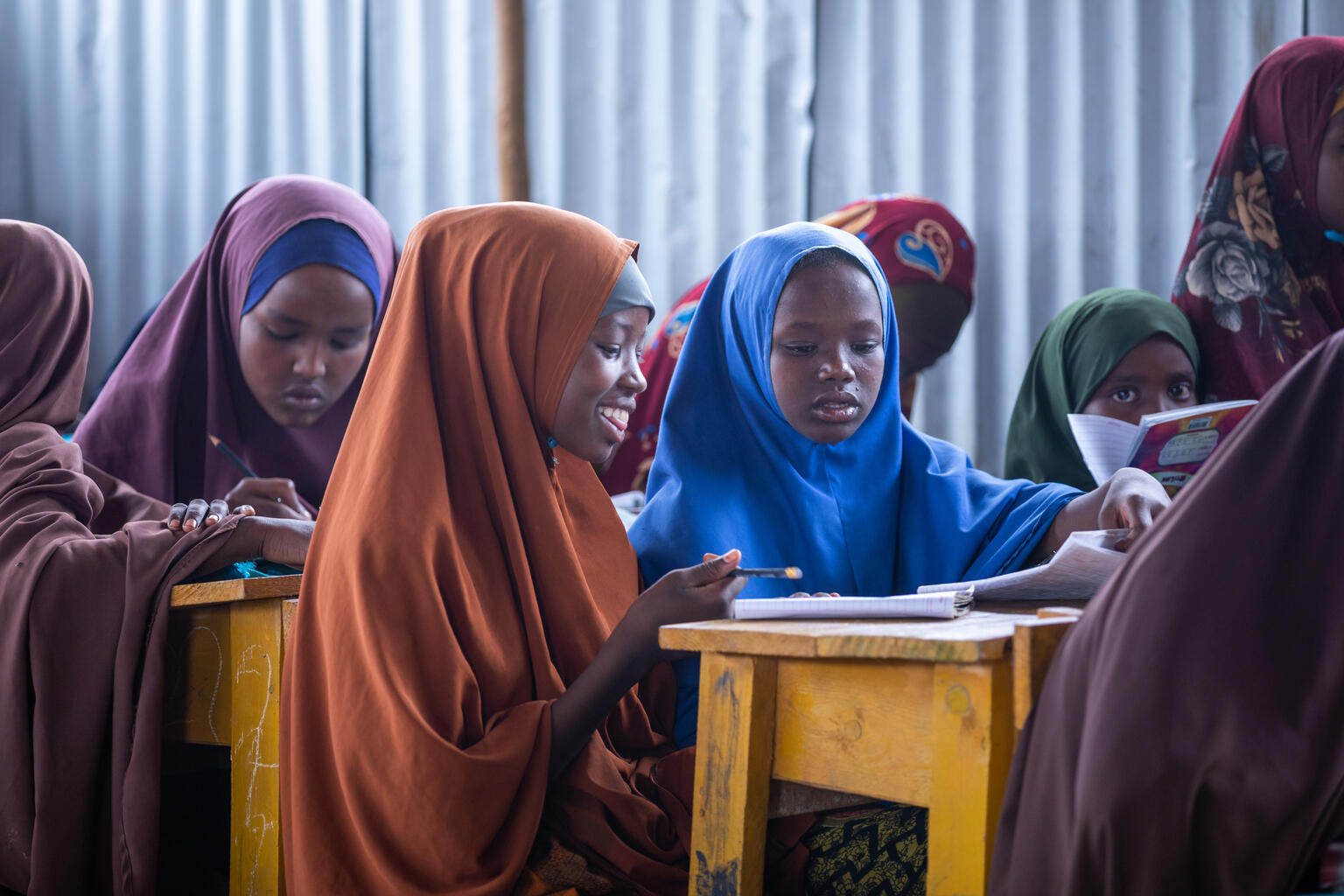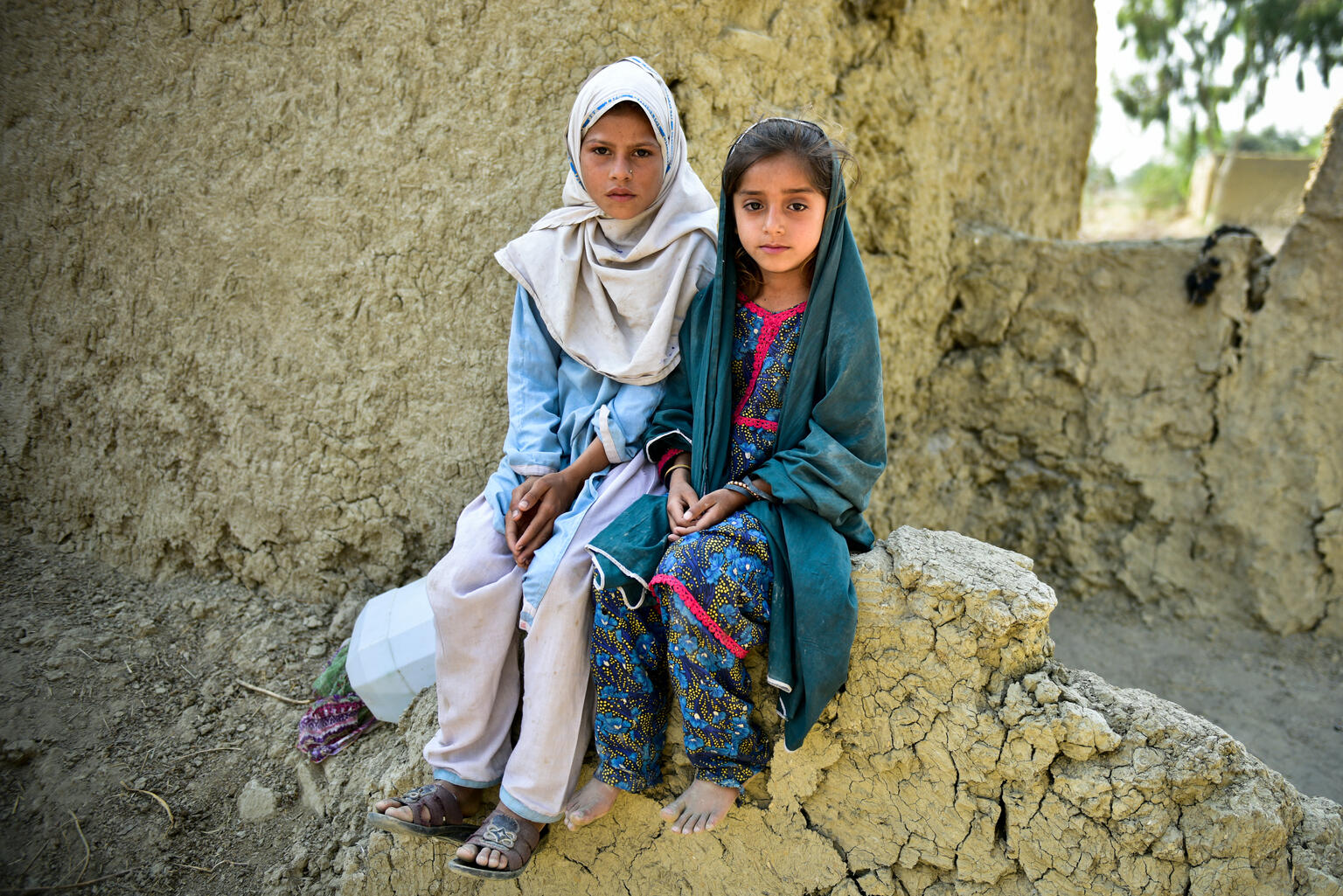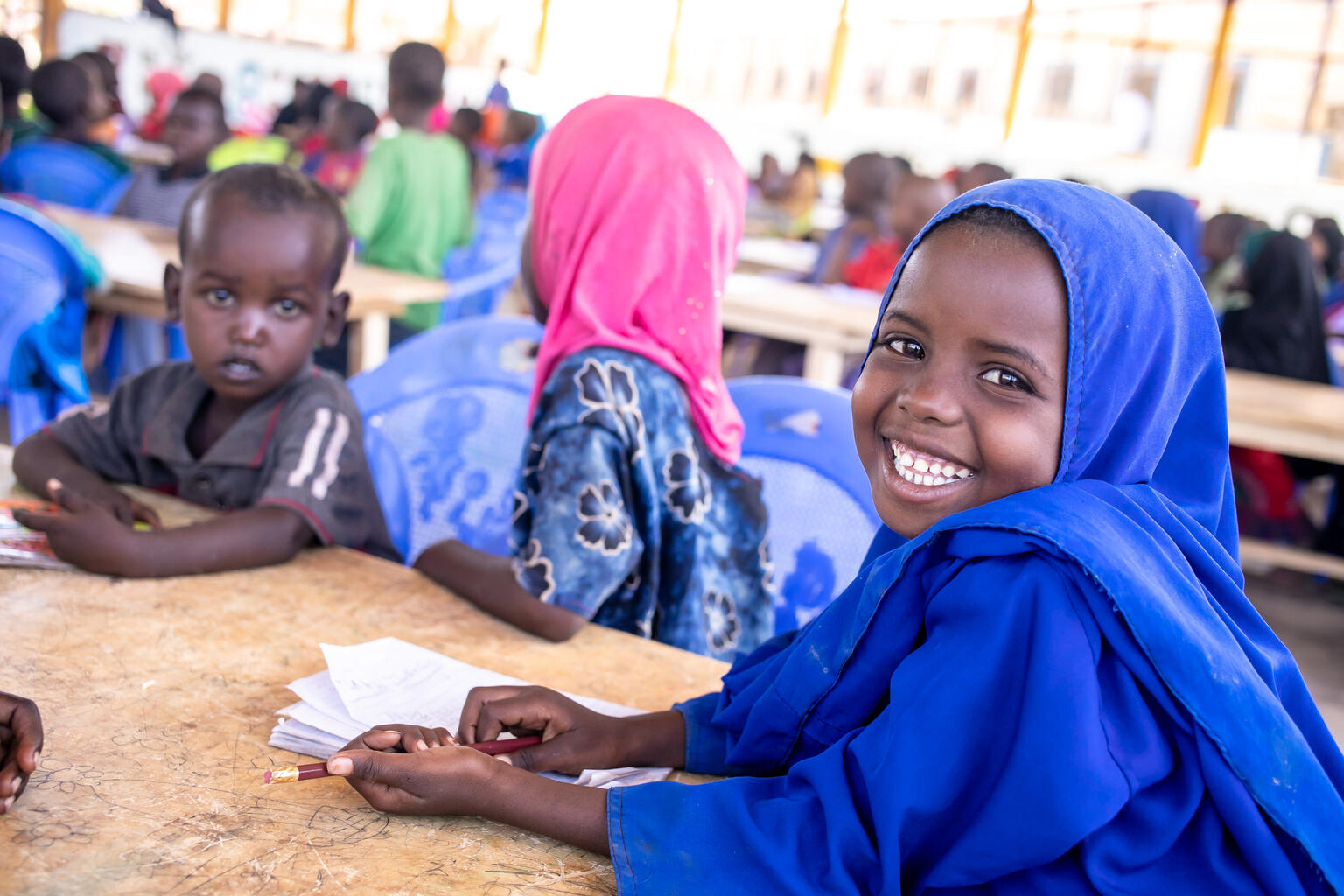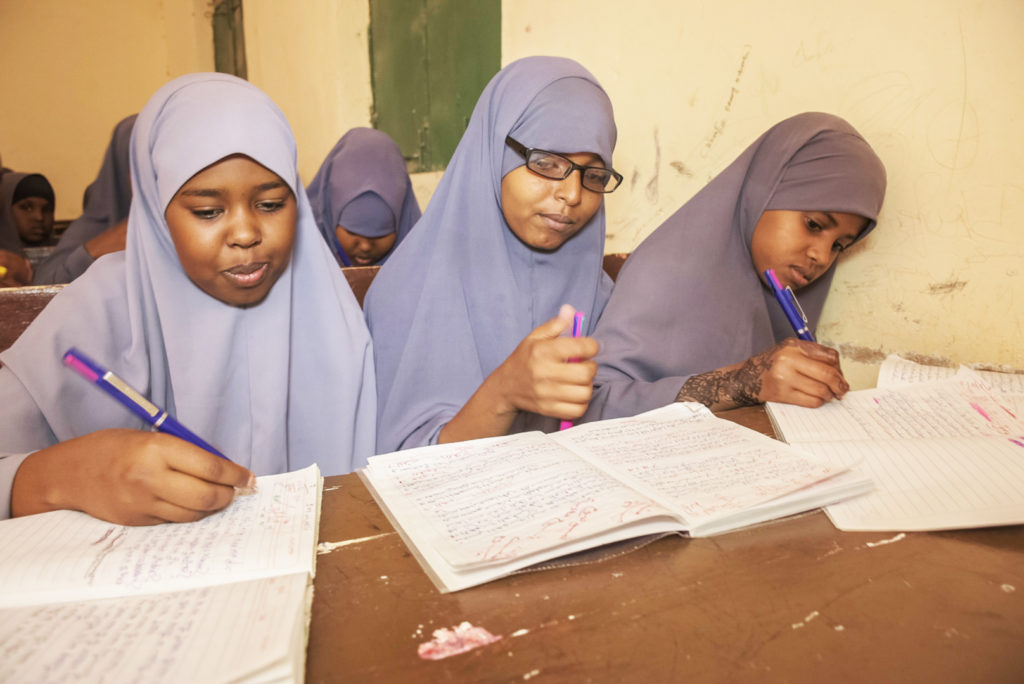Education Cannot Wait Announces US$2 Million First Emergency Response Grant in Somalia and Urges More Donor Funding

4.8 million children are out of school in Somalia as a result of conflict, climate change and other crises. New ECW funding, implemented by UNICEF and partners, will expand innovative approaches to help children catch up on learning. Total ECW funding in Somalia now tops US$35 million.
Education Cannot Wait (ECW) announced today a US$2 million First Emergency Response grant in Somalia. The fast-acting 12-month grant will be delivered by UNICEF in coordination with local partners, providing expanded access to safe learning environments and improving the quality of education for 15,000 girls and boys in the areas of Somalia most affected by internal displacement.
The needs far outstrip the resources available. The new grant accounts for 6% of the total education in emergencies funding needed, and public and private sector donors are urged to provide additional funding to close the gap.
“The climate crisis is a human crisis, too. We see this all too clearly in the disruption and destruction of the education for millions of children and adolescents each time a climate disaster strikes. Somalia – a country that has suffered armed conflict for decades – is now also brutally hit by climate disasters. If we are serious about investing in climate change, we have to invest in the generation that suffers the brunt today and needs an education to address, mitigate and prevent climate change tomorrow. ECW calls on government donors, the private sector, philanthropic foundations and individuals to support crisis-affected children in Somalia. These children and youth must be provided quality education and protective learning environments. It’s our investment in adapting to the life-threatening risks posed by the climate crisis and in giving them a chance to contribute to positive change, not the least in responding to climate change,” said Yasmine Sherif, Executive Director of Education Cannot Wait, the United Nations global fund for education in emergencies and protracted crises.
The ECW grant will address pressing needs facing Somalia’s more than 4.8 million children who are out of school, including the 520,000 displaced children in need of education in Banadir, 271,000 in Baidoa, and close to 80,000 in Lower and Middle Shabelle.
The new investment builds on ECW’s US$33.2 million in existing funding in Somalia, which has already reached more than 175,000 children, including 40,000 internally displaced children.
The climate crisis is an education crisis. The worst drought in 40 years is affecting millions of people across the Sahel, which includes dry regions of Somalia. In Somalia alone, recent UNICEF estimates indicate that as many as 43,000 people – more than half under the age of five – died last year as a result of this crisis. Hunger, malnutrition, disease and other factors are taking lives and unravelling efforts to end hunger and poverty across the region.
“UNICEF is grateful for this significant contribution to get children in schools. Education is a right of every child, and with optimum quality, it is the most fundamental step in giving them a future with opportunities to live a fulfilling life,” said Nejmudin Bilal, UNICEF Somalia Representative, ad interim. “Being in the classroom gives these children access to far more than education. They are in a safe environment, they have water, hygiene materials and a structured day that helps them deal with trauma.”
Somalia has one of the world’s highest rates of out-of-school children. The direct and indirect costs of education – further exacerbated by the impacts of drought, severe food shortages and other negative coping mechanisms – force families to withdraw their children from school in order to meet their basic needs.
This investment will reduce barriers to enrollment by providing cash grants to help girls and boys enroll in schools, establishing temporary learning spaces, and building and restoring water and sanitation facilities.
Even when children are in school, the quality of education is often lacking. To address this challenge, UNICEF will embrace a “Teaching at the Right Level” approach, which ensures learners who have never attended school are able to catch up and integrate themselves into both formal and non-formal learning settings. The investment will also support the training of teachers on social-emotional learning, provide incentives to recruit and retain qualified teachers, and create awareness to ensure child protection and inclusive environments for girls and children with disabilities.
Note to Editors
About Education Cannot Wait (ECW):
Education Cannot Wait (ECW) is the United Nations global fund for education in emergencies and protracted crises. We support quality education outcomes for refugee, internally displaced and other crisis-affected girls and boys, so no one is left behind. ECW works through the multilateral system to both increase the speed of responses in crises and connect immediate relief and longer-term interventions through multi-year programming. ECW works in close partnership with governments, public and private donors, UN agencies, civil society organizations, and other humanitarian and development aid actors to increase efficiencies and end siloed responses. ECW urgently appeals to public and private sector donors for expanded support to reach even more vulnerable children and youth. Donate today.
On Twitter, please follow: @EduCannotWait @YasmineSherif1 @KentPage
Additional information available at: www.educationcannotwait.org
For press inquiries:
Anouk Desgroseilliers, adesgroseilliers@un-ecw.org, +1-917-640-6820
Kent Page, kpage@unicef.org, +1-917-302-1735
For other inquiries: info@un-ecw.org
For Press Inquiries:
Anouk Desgroseilliers:
adesgroseilliers@un-ecw.org
+1-917-640-6820
Kent Page:
kpage@unicef.org
+1-917-302-1735



